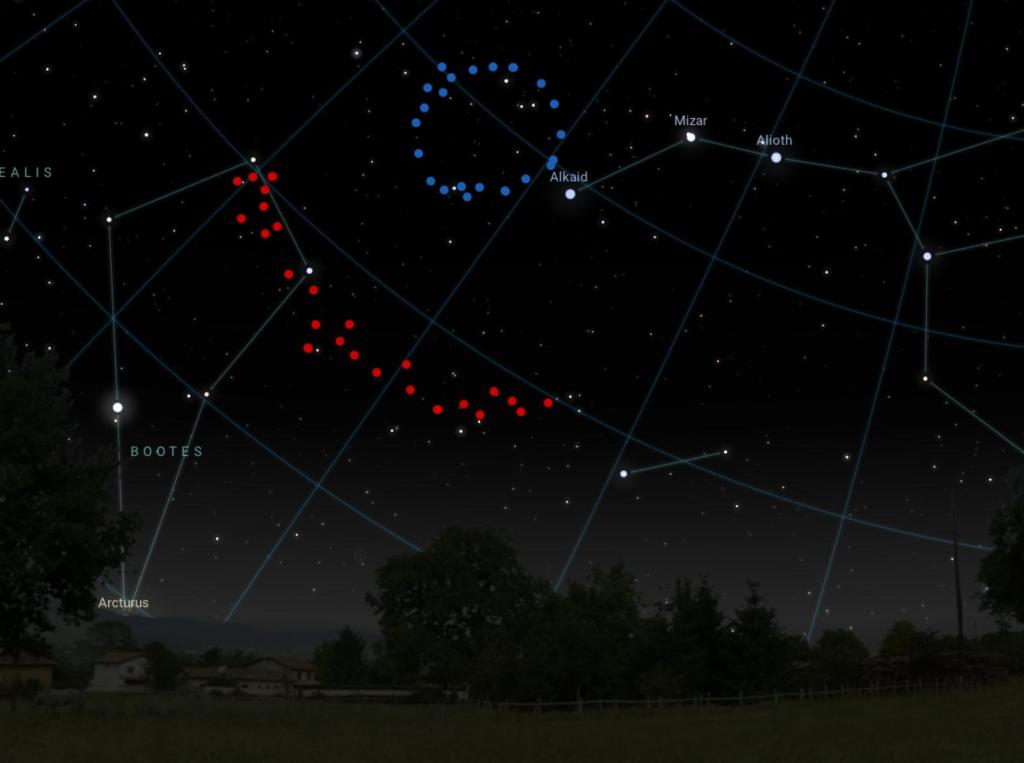On Thursday, a team of researchers from Hungary’s Eötvös Loránd University published research in which they claim that dark energy—the elusive substance thought to make up about two-thirds of the universe—may not exist at all.
In 1925, the astronomer Edwin Hubble fundamentally changed our understanding of the cosmos when he proved that the universe is expanding. By the 1990s, astrophysicists were “fairly certain” that the expansion of the universe would have to slow as time went on and gravity worked its magic on matter. But then in 1998, observations of ten supernovae provided strong evidence that the universe was not only expanding, but it was accelerating.
Videos by VICE
This discovery flipped cosmology on its head and physicists rushed to try to explain what was being observed, which went against all intuition. Dark energy was put forth as a way to explain this entirely unexpected acceleration, and based on recent data from the Planck telescope, it’s estimated to account for roughly 68 percent of the mass of the universe.
“We have quite a bit of information that indicates that dark energy is there and about how it behaves,” Sean Carroll, a cosmologist at Caltech, told me. “The question is why is there the amount of dark energy we see? From the point of view of fundamental physics, that’s a big mystery.”
But according to the new research coming out of Hungary, there’s no reason to posit a universe full of this this mysterious substance to account for the accelerating expansion of the cosmos. Instead, the researchers argue that the existence of dark energy is only necessary because current cosmological models ignore the structure of the universe and use theories based on approximations where matter is assumed to have a uniform density throughout the cosmos.
According to the cosmological principle, the structure of the universe is totally homogenous when viewed on a large enough scale. But closer inspection reveals a lumpy universe that is far from uniform, where galaxies tend to flock together in superclusters and these groupings are thought to be held together by dark matter. In between these clusters of galaxies are massive voids, where both normal and dark matter are absent.
Read More: Why is there a mysterious supervoid in the middle of the universe?
So rather than creating a simulation in which the universe is uniformly expanding based on approximations of the distribution of (dark) matter, the researchers took the small-scale structure of the cosmos into consideration when they created their computer simulations of the evolution of the universe. Based on these simulations, which modeled the effect of gravity on millions of particles of dark matter, different pockets of the universe are expanding at different rates. Yet when taken as an average, the rate of expansion is in accordance with current models.
“Our findings rely on a mathematical conjecture which permits the differential expansion of space, consistent with general relativity, and they show how the formation of complex structures of matter affects the expansion,” said László Dobos, a physicist at Eötvös Loránd University. “We question the validity of the approximate solutions. These issues were previously swept under the rug but taking them into account can explain the acceleration without the need for dark energy.”
While Dobos and his colleagues hope to spark a “lively debate” about the existence of dark energy, not everyone is convinced. Carroll, who was not involved in the research, said the research coming out of Hungary would have to be applied to various types of observational evidence for dark energy, such as the cosmic microwave background and the structural evolution of the universe, and not just rely on evidence based on exploding of supernovae.
“It’s the kind of paper that I’m happy people are doing, but it’s very much an idiosyncratic minority point of view,” he said. “There’s tremendous evidence in favor of dark energy that this paper has nothing to do with whatsoever. To really be at all taken seriously, you’d have to take a model like this and predict very precisely what we should observe for other pieces of evidence.”
Subscribe to pluspluspodcast , Motherboard’s new show about the people and machines that are building our future.




